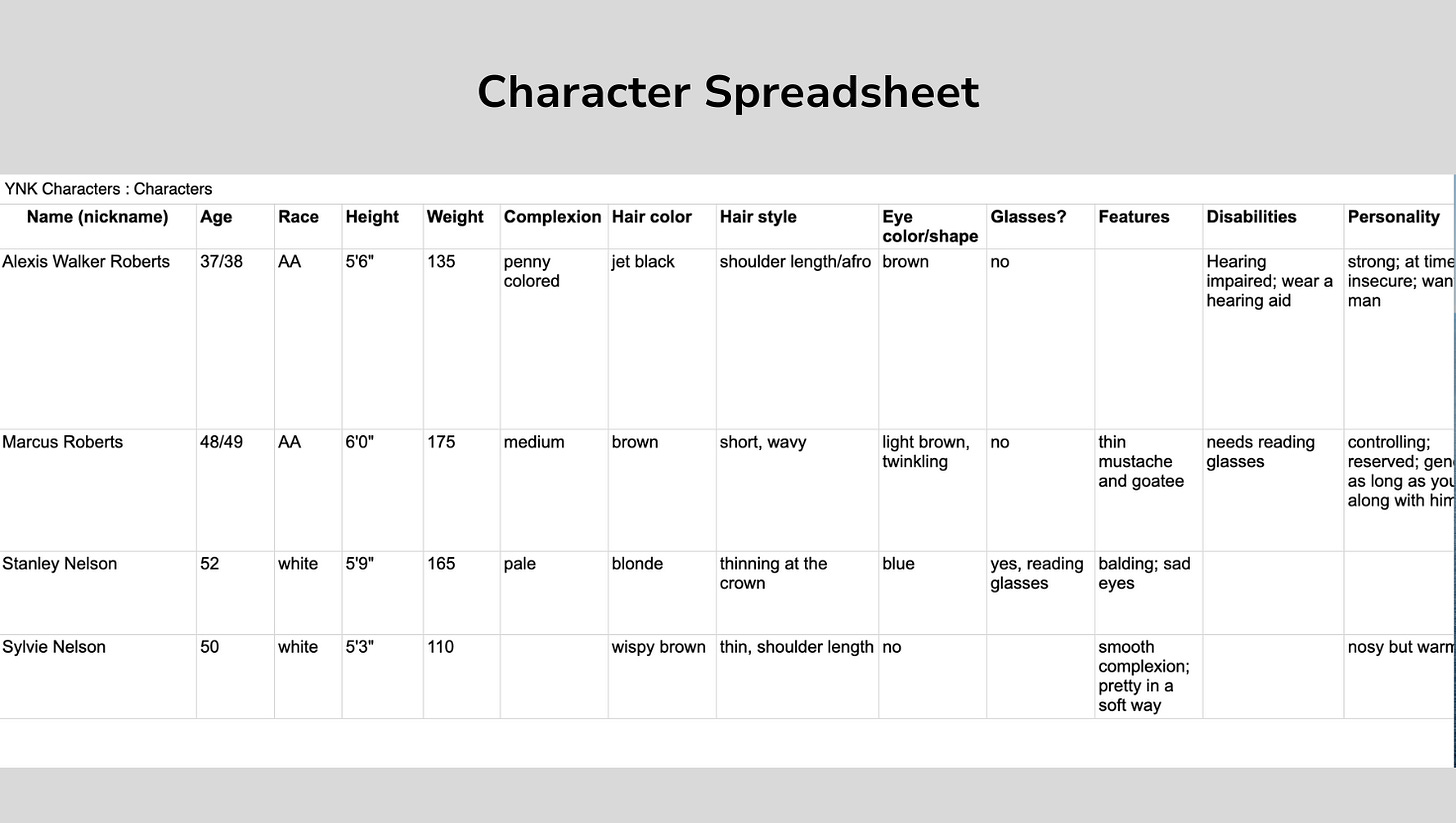You read that right. I usually prefer a character spreadsheet over those ubiquitous character worksheets to track all the traits and features I dream up for my novels. It's one of those writing tasks where we have to switch from the creative right brain to the analytical left—just like plotting and outlining. But it’s so worth it.
I don’t create elaborate spreadsheets for every novel, only when I have too many characters to track mentally or with simple notes. When I do use one, it becomes my most valuable tool next to the manuscript itself.
When and Why Spreadsheets Outperform Worksheets
The beauty of a spreadsheet lies in comparison and connections. Unlike worksheets that track one character each, spreadsheets let you easily compare and contrast details across all of your characters. It prevents the writer from accidentally duplicating names or traits, giving two characters the same belongings, or worse, forgetting crucial personality details that you established many chapters earlier. In summary, it allows you to more easily see connections, similarities, and differences.
You can include both main and minor characters in your spreadsheets, tracking everything from basic physical descriptions to personality traits, backstories, and relationships. The spreadsheet becomes your reference guide as you write, helping you maintain consistency throughout the entire novel.
You can see a simplified version of the character spreadsheet I created for my novel You Never Know here. Be sure to scroll to the right to see all the details it keeps track of. I included only four characters in this sample to keep things straightforward, but the actual spreadsheet had nearly a dozen. You could easily use this approach to keep track of dozens or even hundreds of characters.
Thus, a character spreadsheet makes more sense when you're juggling multiple characters with intersecting storylines, such as when writing epic fantasy or a family saga. Or when you're writing a series where consistency across books becomes important. For shorter works or stories with just a few primary characters, simple notes or worksheets might suffice.
Also for complex novels where characters weave in and out of scenes, and where small details matter to your plot such as with mysteries or suspense, a spreadsheet can save you hours of searching through your manuscript and prevent continuity errors. If you've ever found yourself flipping back through two hundred pages trying to remember when an event happened or where you inserted that last clue or red herring, you'll easily understand and appreciate their usefulness.
The goal isn't to complicate the process; it's to support your creativity with organization when you need it.
Become a paid subscriber today.





I totally use spreadsheets too (I think it’s the former banker in me) I have a main tab with each of the major beats outlined and then columns tracking characterization and my two main narrative arcs to make sure i am deepening character and advancing the narrative arc with each beat. Love seeing someone else’s process to see what I can learn!
Great idea, thank you Connie! I use those character sheets you mention, but I'll try a spreadsheet next time.